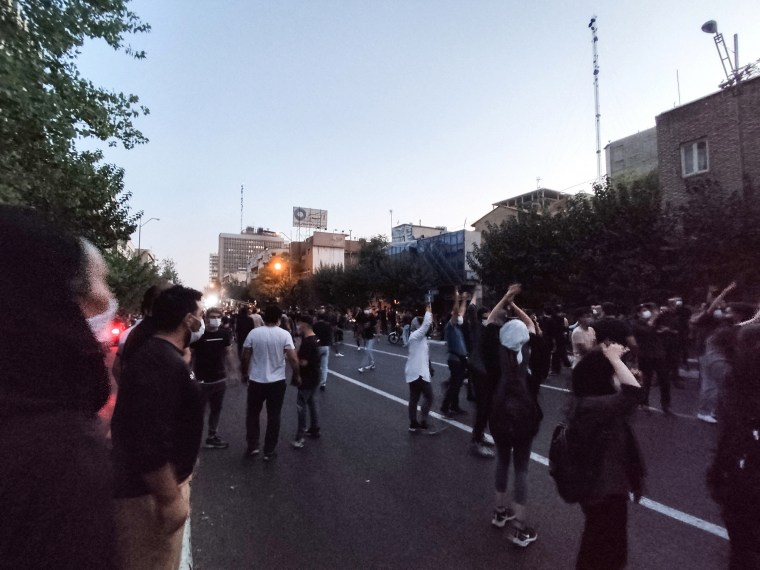Washington, D.C., January 11, 2023 – Iranian authorities must drop all charges filed against journalists in retaliation for their coverage of protests in the country and stop handing down harsh prison sentences to members of the press, the Committee to Protect Journalists said Wednesday.
Iranian authorities have arrested at least 88 journalists since September 2022, when mass protests erupted across the country following the death of a 22-year-old woman, Mahsa Amini, after morality police arrested her for allegedly violating the country’s conservative dress law.
Authorities have charged nearly all of those journalists with “spreading propaganda against the ruling system” and “colluding and acting against national security,” according to sources familiar with their cases who spoke to CPJ on the condition of anonymity, citing fear of reprisal.
Under the Iranian penal code, convictions for that propaganda offense carry prison terms of up to one year, and the collusion charge can carry up to five years. However, at least five journalists have received sentences in excess of those legal maximums, including extra prison time, lashes from a whip, bans on working or leaving the country, or mandatory community service.
“Iranian authorities must drop all the dubious charges against journalists detained for covering protests in the country, and should free them immediately and unconditionally,” said Sherif Mansour, CPJ’s Middle East and North Africa program coordinator. “By issuing heavy sentences against journalists, in some cases in excess of what the law allows, authorities are showing the lengths they are willing to go to silence the press.”
At least the following five journalists have received sentences in excess of the legal maximums for collusion or propaganda, and are free while their appeals are pending:
- Vida Rabbani, a freelance reporter and political commentator covering local news for various Tehran outlets, was sentenced to seven years and three months in prison for collusion and propaganda, according to a December report by the exile-run Human Rights Activist News Agency (HRANA) and a tweet by her lawyer. Rabbani, who is already serving a 10-year sentence on unrelated charges, must serve a minimum of six years behind bars if that sentence is not changed on appeal, according to those sources.
- Aria Jaffari, a photojournalist for the semi-official state-run Iranian Students’ News Agency (ISNA), was sentenced on December 26 to seven years in prison on propaganda and collusion charges, and was also sentenced to 74 lashes and a two-year ban on leaving the country, according to news reports.
- Yalda Moaiery, a freelance photojournalist, was sentenced to six years in prison on both charges, and also received a two-year ban from leaving the country, a three-year ban from working as a journalist, and two-months of community service street cleaning, according to news reports from December and an Instagram post by Moaiery.
- Ahmadreza Halabisaz, a photojournalist, was reported in December to have been sentenced to five years in prison on both charges, and also received a two-year ban from practicing journalism, according to an Instagram post by Halabisaz and another source familiar with the case who spoke to CPJ on the condition of anonymity, citing fear of reprisal.
- Mehrnoosh Tafian, a freelance reporter, was sentenced to one year in prison for propaganda and also received a two-year ban on leaving the country, according to a December HRANA report and a source familiar with his case.
Journalists imprisoned in Iran have been frequently denied legal representation and due process, according to CPJ research. At least 36 journalists arrested for covering the protests have been released on bail, which local journalists speaking to CPJ on the condition of anonymity said was often set excessively high.
CPJ’s email to the Iran mission to the United Nations for comment, but did not receive any response.
